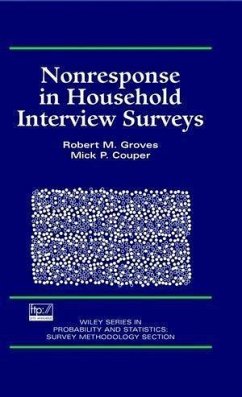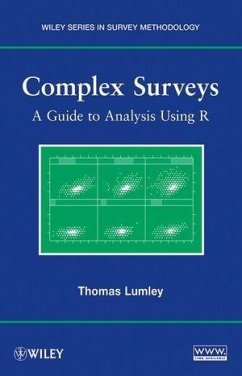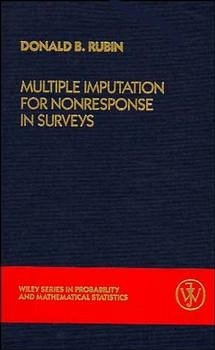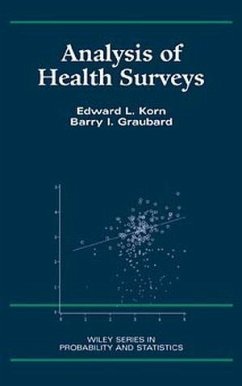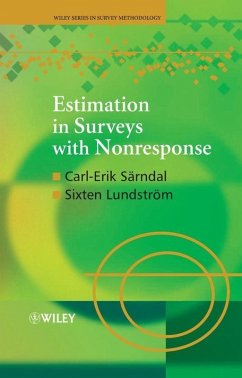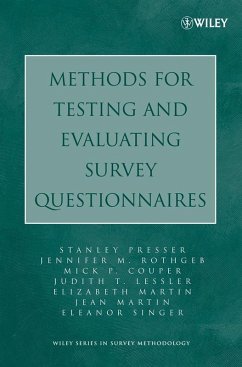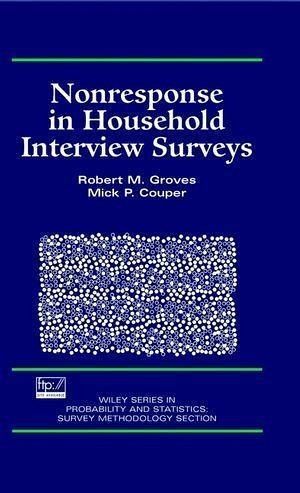
Nonresponse in Household Interview Surveys (eBook, PDF)
Versandkostenfrei!
Sofort per Download lieferbar
159,99 €
inkl. MwSt.
Weitere Ausgaben:

PAYBACK Punkte
0 °P sammeln!
A comprehensive framework for both reduction of nonresponse andpostsurvey adjustment for nonresponse This book provides guidance and support for survey statisticianswho need to develop models for postsurvey adjustment fornonresponse, and for survey designers and practitioners attemptingto reduce unit nonresponse in household interview surveys. Itpresents the results of an eight-year research program that hasassembled an unprecedented data set on respondents andnonrespondents from several major household surveys in the UnitedStates. Within a comprehensive conceptual framework of influences onno...
A comprehensive framework for both reduction of nonresponse andpostsurvey adjustment for nonresponse This book provides guidance and support for survey statisticianswho need to develop models for postsurvey adjustment fornonresponse, and for survey designers and practitioners attemptingto reduce unit nonresponse in household interview surveys. Itpresents the results of an eight-year research program that hasassembled an unprecedented data set on respondents andnonrespondents from several major household surveys in the UnitedStates. Within a comprehensive conceptual framework of influences onnonresponse, the authors investigate every aspect of surveycooperation, from the influences of household characteristics andsocial and environmental factors to the interaction betweeninterviewers and householders and the design of the surveyitself. Nonresponse in Household Interview Surveys: * Provides a theoretical framework for understanding and studyinghousehold survey nonresponse * Empirically explores the individual and combined influences ofseveral factors on nonresponse * Presents chapter introductions, summaries, and discussions onpractical implications to clarify concepts and theories * Supplies extensive references for further study and inquiry Nonresponse in Household Interview Surveys is an important resourcefor professionals and students in survey methodology/researchmethods as well as those who use survey methods or data inbusiness, government, and academia. It addresses issues critical todealing with nonresponse in surveys, reducing nonresponse duringsurvey data collection, and constructing statistical compensationsfor the effects of nonresponse on key survey estimates.
Dieser Download kann aus rechtlichen Gründen nur mit Rechnungsadresse in A, B, BG, CY, CZ, D, DK, EW, E, FIN, F, GR, HR, H, IRL, I, LT, L, LR, M, NL, PL, P, R, S, SLO, SK ausgeliefert werden.




